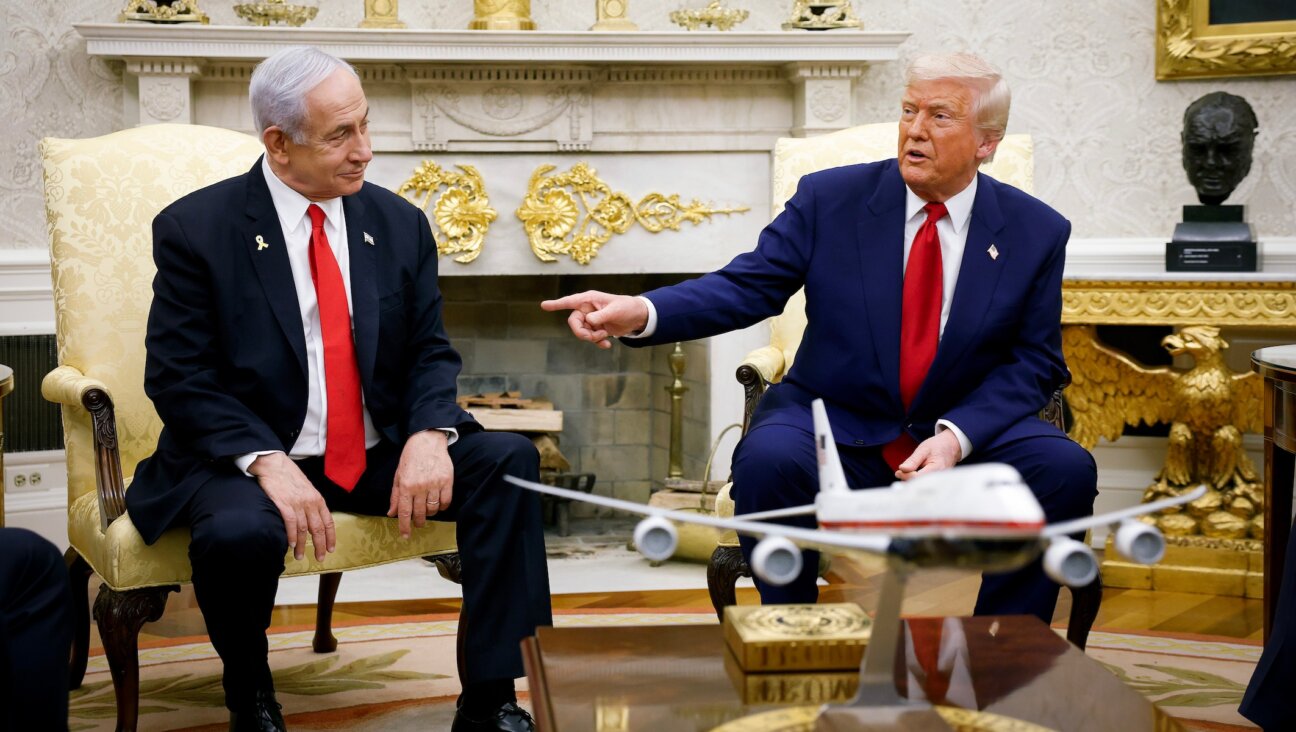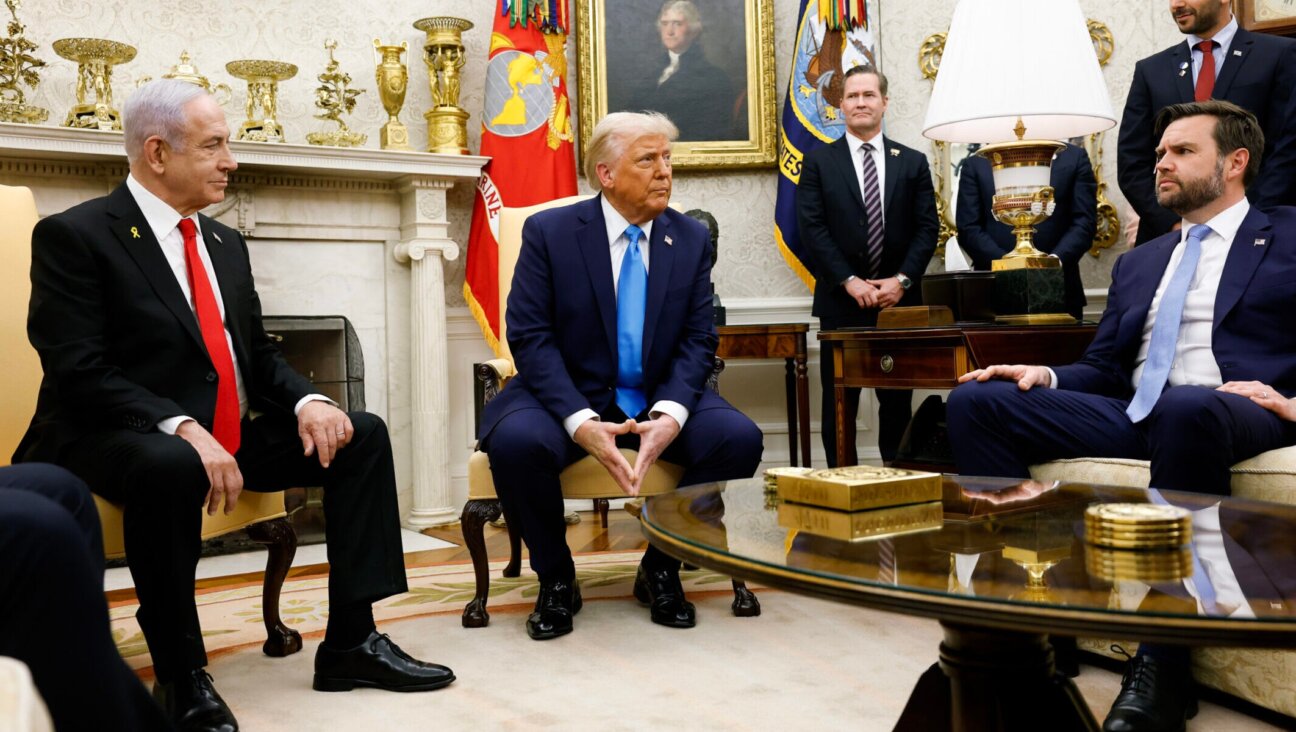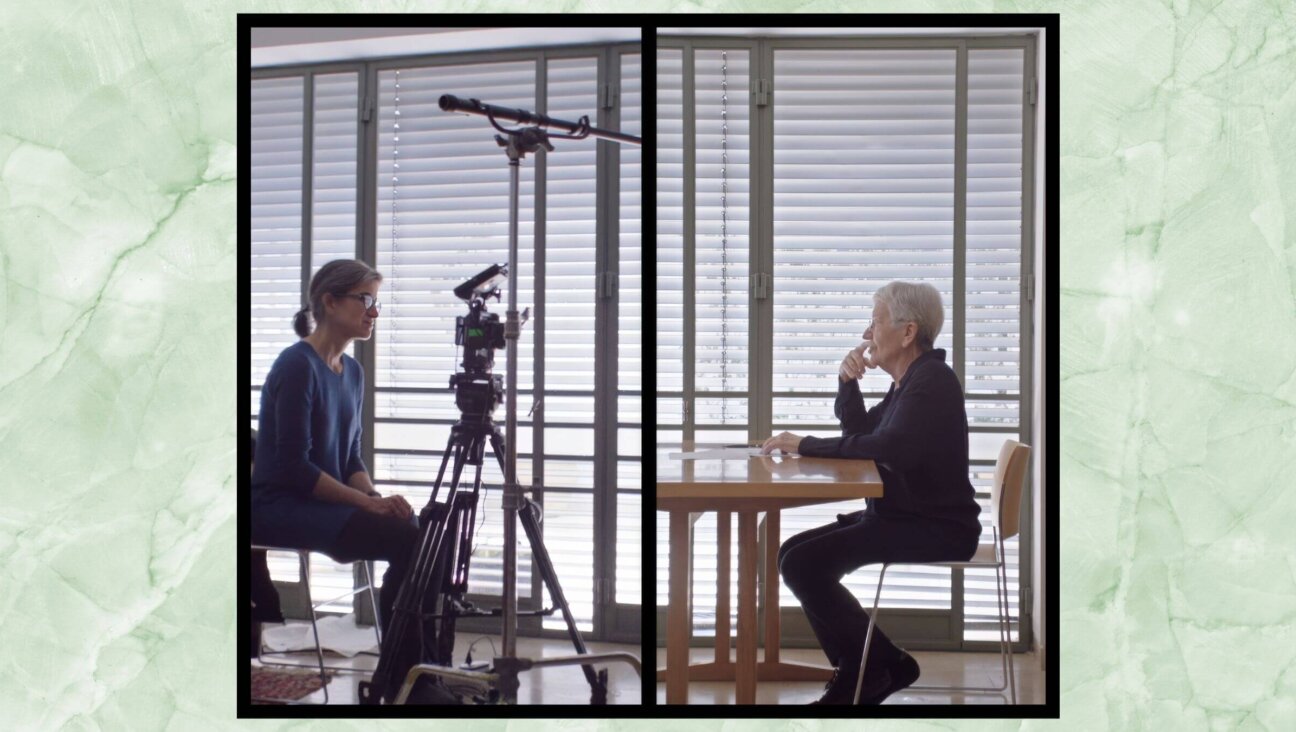Actually, Netanyahu’s Speech Was A Warning — And Not For Trump

Image by Getty Images
Israeli PM Netanyahu’s cartoonish presentation to the world on Monday of Iran’s stolen nuclear archive predictably aroused a broad spectrum of reaction. Much of the scorn heaped on the presentation is technically correct.
There was nothing really new here. There was no smoking gun of Iranian violation of the JCPOA nuclear deal. And this was in many ways, including visually, a presentation for the one-man audience of President Trump. As far as Netanyahu’s Israeli audience is concerned, he worked his media magic at a time when he needs to shore up his political “base” in anticipation of corruption indictments.
But the criticism, much of it from knowledgeable Israeli and global security circles, misses some of the less obvious yet very significant rationales behind the timing and content of what Netanyahu said. This was a one-two punch directed as much at Iran and Russia as at Trump.
The presentation followed by less than a day the destruction, deep in Syrian territory, of some 200 Iranian missiles stored in underground bunkers. The attack on the missiles, attributed to Israel, also apparently killed a number of Iranian al-Quds force soldiers. The Iranian missiles with their 750 kg. warheads and enhanced accuracy were almost certainly intended for attacking Israel from Syrian soil. Their destruction triggered an explosion that was recorded in Europe as a low-level earthquake.
Netanyahu in his Monday talk did not discuss the Syria attack, for which Israel has taken no credit. Yet it hovered in the air of the Defense Ministry auditorium where the prime minister spoke. The attack, after all, drove home to Iran the recognition that its enemy’s intelligence establishment was capable of knowing in real time where the missiles were stored and that its enemy’s security establishment was capable of penetrating the bunkers and destroying them. Iran’s deployment on Syrian soil has been deeply penetrated by Israel.
Then came the presentation of the Iranian nuclear archive. Forget for a moment the corny marketing of facts about Iran’s nuclear lies that the international community has known about for a decade and that in fact motivated it to negotiate the JCPOA. Forget, too, the interesting question whether Netanyahu’s performance was meant to reinforce a Trump decision to scrap the JCPOA or rather to persuade Trump to overcome his new inclination, primed by France’s Macron and Germany’s Merkel, to stick with the deal and somehow improve on it. Indeed, one could argue that by demonstrating how close Iran was in the past to a nuclear weapons breakthrough, Netanyahu merely pointed to the nuclear crisis that Iran will generate the moment it is freed from the JCPOA restrictions it has meticulously obeyed. Rather, the point was that Israel had made off with half a ton of a top secret digital and paper archive from the heart of Tehran, under the noses of an Iranian security establishment that is paranoid about Israeli spying. Not only is Iran’s presence in Syria deeply penetrated by Israel, but so is Iran’s nuclear infrastructure.
And not only does Iran now know this, but so do Iran’s Russian allies in Syria and so do the Sunni Arab countries that share Israel’s concerns about Iranian nuclear and territorial designs. Further, judging by Netanyahu’s contacts with President Trump and Secretary of State Pompeo immediately prior to the attack in Syria, the attack and the presentation reflect close US-Israeli coordination.
Official Iran quickly deleted its initial on-line acknowledgement regarding the scope of its human losses in the Syria attack. Likewise, it may deny either the authenticity or the importance of the document heist. But I would argue that the one-two punch of the Syria attack and the nuclear revelations served an important strategic purpose for Israel that goes beyond Trump and politics: deterrence.
Unless Israel can persuade Iran to back off militarily, the two are on a slippery slope toward heavy military confrontation in Syria and possibly Lebanon as well. The escalatory possibilities include a missile war across 1500 km of airspace, accidental collateral damage to Syria-based Russian forces and a Russia-Israel confrontation reminiscent of Cold War days in the Middle East. Efforts thus far, by Russia and others, to broker an Iran-Israel understanding regarding Syria have obviously failed.
The Israeli security community is fully justified in taking Iran’s threats and its capabilities seriously. The attack on Iranian missiles in Syria and the heist of its nuclear archive in Tehran are equally justified by Israel’s most existential security interests. Note that Israel’s existence is no longer threatened by Arab countries—only Islamist movements and Iran.
If this week’s one-two punch successfully strengthened Israel’s deterrence vis-à-vis Tehran, and if Iran is beginning to get the message, we can all forgive Bibi’s theatrics.
Yossi Alpher is a former Mossad official and former director of Tel Aviv University’s Jaffee Center for Strategic Studies.
The Forward is free to read, but it isn’t free to produce

I hope you appreciated this article. Before you go, I’d like to ask you to please support the Forward.
Now more than ever, American Jews need independent news they can trust, with reporting driven by truth, not ideology. We serve you, not any ideological agenda.
At a time when other newsrooms are closing or cutting back, the Forward has removed its paywall and invested additional resources to report on the ground from Israel and around the U.S. on the impact of the war, rising antisemitism and polarized discourse.
This is a great time to support independent Jewish journalism you rely on. Make a gift today!
— Rachel Fishman Feddersen, Publisher and CEO
Support our mission to tell the Jewish story fully and fairly.
Most Popular
- 1

Fast Forward Why the Antisemitism Awareness Act now has a religious liberty clause to protect ‘Jews killed Jesus’ statements
- 2

News School Israel trip turns ‘terrifying’ for LA students attacked by Israeli teens
- 3

Culture Cardinals are Catholic, not Jewish — so why do they all wear yarmulkes?
- 4

Music After decades of waiting, we’re finally getting a Bob Dylan-Barbra Streisand duet
In Case You Missed It
-

Culture Is ‘Andor’ about Jews, Palestinians — or both and/or neither?
-

Fast Forward Judge dismisses lawsuit against Zionist Organization of America leader Mort Klein
-

Fast Forward US reaches truce with Houthis hours after Israel bombs their airport in Yemen
-

Fast Forward Trump says only 21 hostages remain alive in Gaza: ‘3 have died’
-
Shop the Forward Store
100% of profits support our journalism
Republish This Story
Please read before republishing
We’re happy to make this story available to republish for free, unless it originated with JTA, Haaretz or another publication (as indicated on the article) and as long as you follow our guidelines.
You must comply with the following:
- Credit the Forward
- Retain our pixel
- Preserve our canonical link in Google search
- Add a noindex tag in Google search
See our full guidelines for more information, and this guide for detail about canonical URLs.
To republish, copy the HTML by clicking on the yellow button to the right; it includes our tracking pixel, all paragraph styles and hyperlinks, the author byline and credit to the Forward. It does not include images; to avoid copyright violations, you must add them manually, following our guidelines. Please email us at [email protected], subject line “republish,” with any questions or to let us know what stories you’re picking up.















